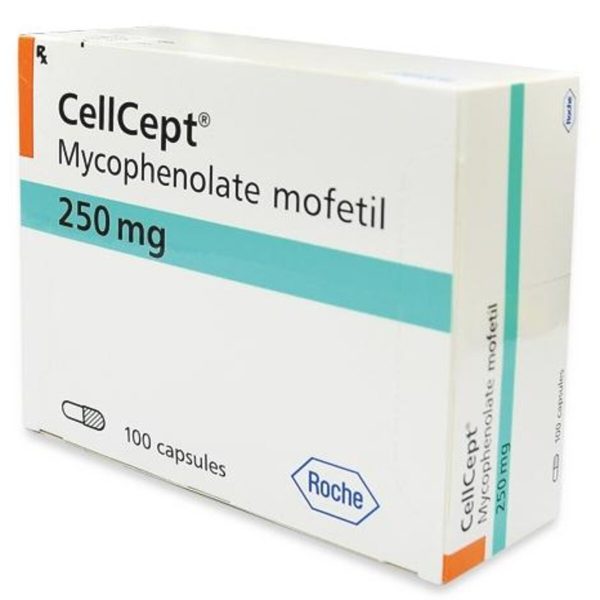- Description
- Additional Information
- Brand
- How To Use
- Product Details
- Side Effects
- Ingredients
- How to Store
- Patient Information leaflet
- Reviews (0)
- Questions & Answers
Rifadin Syrup – Rifampicin 100mg/5ml Syrup, 120ml
Introducing Rifadin Syrup – Rifampicin 100mg/5ml Syrup, your trusted ally in fighting bacterial infections effectively. This oral suspension is meticulously formulated to combat a range of bacterial ailments, ensuring optimal health and well-being.
Key Features:
- Versatile Treatment: Rifadin Syrup is specially designed to tackle various bacterial infections, including tuberculosis (TB), leprosy, brucellosis, Legionnaires Disease, Haemophilus Influenzae, and other serious bacterial infections.
- Comprehensive Protection: This potent formula not only treats existing infections but also prevents the development of meningitis and Haemophilus Influenzae in children aged 4 years or younger, providing comprehensive protection against harmful pathogens.
- Trusted Ingredients: Each 5ml of Rifadin Syrup contains 100mg of rifampicin, the active ingredient renowned for its efficacy in combating bacterial infections. Rigorously tested and clinically proven, you can trust the quality and reliability of this formulation.
- Wide Application: While commonly used to treat infections in horses, Rifadin Syrup can also be used off-label to address specific types of infections in dogs and cats, making it a versatile solution for pet healthcare needs.
Directions for Use:
For optimal results, follow the dosage instructions provided by your healthcare professional. Shake the bottle well before each use and administer the prescribed amount orally, as directed.
Safety Precautions:
- Keep out of reach of children.
- Store at room temperature away from direct sunlight and moisture.
- Do not use beyond the expiration date.
- Consult your veterinarian before administering to pets.
Don’t let bacterial infections compromise your health or the well-being of your beloved pets. Trust Rifadin Syrup – Rifampicin 100mg/5ml Syrup for effective and reliable bacterial infection treatment. Upgrade your defense against harmful pathogens today!
Rifadin Syrup Reviews
After using Rifadin Syrup, it’s helpful to let others know about your experience. Reviews of an item help other users know that medicines received have helped the condition it is claimed for, how well the treatment worked or any issues to be aware of. We invite our users to leave a review of both their treatment and of the service provided. Click on the reviews tab to see if there has been feedback on this item.
What is the price of Rifadin Syrup?
The price of Rifadin Syrup is £8.50
Where can you buy Rifadin Syrup?
You can buy Rifadin Syrup at Dock Pharmacy Essex UK, UK Online Pharmacy.
Can you buy Rifadin Syrup Over the counter?
Rifadin Syrup is not available to buy over the counter. You need a prescription to buy Rifadin Syrup from Dock Pharmacy. You can find more information about how to obtain the medication here:
Disclaimer: This product description is provided for informational purposes only. It is not a substitute for professional medical advice, diagnosis, or treatment. Always seek the advice of your physician or other qualified health provider with any questions you may have regarding a medical condition
Dock Pharmacy
128 Dock Road, Tilbury, Essex, RM18 7BJ
Tel: 01375846316
| Brand | |
|---|---|
Brand
RIFADIN
How To Use
How to take Rifadin Oral Suspension
Always take Rifadin Oral Suspension exactly as your doctor has told you. You should check with your doctor or pharmacist if you are not sure. Keep taking this medicine
- You must take this medicine each day for the whole time the doctor has told you to take it
- Do not stop and start taking the Oral Suspension. This may increase the risk of side effects and your infection will not be treated properly
How to take the Oral Suspension
- Shake well before use;
- Take this medicine by mouth;
- Take at least 30 minutes before a meal or 2 hours after a meal;
Product Details
What you need to know before you take Rifadin Oral Suspension
Do not take Rifadin Oral Suspension if: X You are allergic (hypersensitive) to – rifampicin – any of the other ingredients of the Rifadin Oral Suspension (see Section 6: Further information) Signs of an allergic reaction include: a rash, swallowing or breathing problems, swelling of your lips, face, throat or tongue X You have yellowing of the skin and eyes (jaundice) X You are taking saquinavir or ritonavir for an HIV infection (see ‘Taking other medicines’ section below) Do not take if any of the above apply to you. If you are not sure, talk to your doctor or pharmacist before taking Rifadin Oral Suspension. Warnings and precautions Talk to your doctor or pharmacist before taking Rifadin Oral Suspension if: ▲ You have liver problems ▲ You have any kidney problems and if you are having more than 600mg rifampicin per day.
▲ You have diabetes. Your diabetes may become more difficult to control while taking this medicine ▲ You feel numb or weak in your arms and legs (peripheral neuropathy) ▲ You are under weight or malnourished ▲ You have a rare blood problem called ‘porphyria’ ▲You have a problem with bleeding or a tendency to bruise easily ▲Your symptoms of tuberculosis return or get worse (see section 4 Possible side effects) ▲ You wear contact lenses. Taking Rifadin Oral Suspension may permanently stain soft contact lenses ▲ The person taking this medicine is a child ▲ You are aged 65 years or older If you are not sure if any of the above apply to you, talk to your doctor or pharmacist before taking Rifadin Oral Suspension. Blood Tests Your doctor will need to check your blood before you take this medicine. This will help your doctor know if any changes happen to your blood after taking this medicine. You may also need to have regular blood tests to check how your liver is working. Take special care with Rifadin Oral Suspension Serious skin reactions including Stevens-Johnson syndrome (SJS), toxic epidermal necrolysis (TEN), drug reaction with eosinophilia and systemic symptoms (DRESS), acute generalized exanthematous pustulosis (AGEP) have been reported with the use of Rifadin Oral Suspension. • SJS/TEN can appear initially as reddish target spots or circular patches often with central blisters on the trunk. Also ulcers of mouth, throat, nose, genitals and eyes (red and swollen eyes) can occur. These serious skin rashes are often preceded by fever and/or flu-like symptoms. The rashes may progress to widespread peeling of the skin and life-threatening complications or be fatal. • DRESS appears initially as flu-like symptoms and a rash on the face then an extended rash with a high body temperature, increased levels of liver enzymes seen in blood tests and an increase in a type of white blood cell (eosinophilia) and enlarged lymph nodes. • AGEP appears at the initiation of treatment as a red, scaly widespread rash with bumps under the skin and blisters accompanied by fever. The most common location: mainly localized on the skin folds, trunk, and upper extremities The highest risk for occurrence of serious skin reactions is within 2 days to 2 months after treatment initiation depending on the condition. If you develop a serious rash or another of these skin symptoms, stop taking Rifadin Oral Suspension and contact your doctor or seek medical attention immediately. Other medicines and Rifadin Oral Suspension Please tell your doctor or pharmacist if you are taking or have recently taken any other medicines. This includes medicines you buy without a prescription, including herbal medicines. This is because Rifadin Oral Suspension can affect the way some other medicines work. Also some medicines can affect the way Rifadin Oral Suspension works. In particular, do not take this medicine, and tell your doctor, if you are taking: • Saquinavir or ritonavir used for HIV infection The following medicines can make Rifadin Oral Suspension work less well: • Antacids used for indigestion. Take Rifadin Oral Suspension at least 1 hour before taking antacids • Other medicines used for TB such as P-aminosalicyclic acid (PAS). PAS and Rifadin Oral Suspension should be taken at least 8 hours apart Tell your doctor if you are taking any of the following medicines: Heart and blood medicines • Medicines for high blood pressure • Medicines for heart problems or to control your heartbeat • Medicines used to thin the blood such as warfarin and clopidogrel • Medicines used to lower cholesterol • Water tablets (diuretics) such as eplerenone Mental health, epilepsy and motor neurone medicines • Medicines for thought disorders known as ‘antipsychotics’ such as haloperidol • Medicines to calm or reduce anxiety (hypnotics, anxiolytics) • Medicines to help you sleep (barbiturates) • Medicines used for epilepsy such as phenytoin • Some medicines used for depression such as amitriptyline and nortriptyline • Riluzole – used for motor neurone disease
Medicines for infections and the immune system • Some medicines used for viral infections such as indinavir, efavirenz, amprenavir, nelfinavir, atazanavir, lopinavir, neviparine, daclatasvir, simeprevir, sofosbuvir and telaprevir • Medicines used for fungal infections • Medicines used for bacterial infections (antibiotics) • Medicines used for lowering your immune system such as ciclosporin, sirolimus and tacrolimus • Praziquantel – used for tapeworm infections • Atovaquone – used for pneumonia Hormone and cancer medicines • Some hormone medicines (estrogen, systemic hormones, progestogens) used for contraception or some types of cancer such as ethinyloestradiol, levonorgestrel or dydrogesterone • Some hormone medicines (anti-estrogens) used for breast cancer or endometriosis such as tamoxifen, toremifene and gestrinone • Some medicines used for cancer (cytotoxics) such as imatinib • Levothyroxine (thyroid hormone) used for thyroid problems • Irinotecan – used for cancer Pain, inflammation and gout medicines • Non-steroidal anti-inflammatory drugs (NSAIDS) such as etoricoxib, aspirin and indometacin • Medicines used for pain such as codeine, morphine, fentanyl or pethidine • Corticosteroids used for inflammation such as hydrocortisone, betamethasone and prednisolone • Methadone – used for heroin withdrawal Other medicines • Medicines used for diabetes • Medicines used to relax muscles before surgery (anaesthetics) such as halothane • Some medicines used for feeling sick or being sick such as ondansetron and aprepitant • Other antibiotic medicines such as cefazolin • Quinine – used for malaria • Theophylline – used for wheezing or difficulty in breathing Taking Rifadin Oral Suspension with food and drink Take Rifadin Oral Suspension on an empty stomach. This means at least 30 minutes before food or 2 hours after food. Pregnancy, breast-feeding and fertility Talk to your doctor before taking this medicine if you are pregnant, plan to get pregnant or think you are pregnant. Rifadin Oral Suspension may make the contraceptive “pill” work less well. This means you should change to a different type of contraception. Instead, you must use a reliable barrier method of contraception such as condoms or the “coil” while taking Rifadin Oral Suspension. If you have any questions or are unsure about this talk to your doctor or pharmacist. You should not breast-feed if you are taking Rifadin Oral Suspension. This is because small amounts may pass into the mothers’ milk. If you are breast-feeding or planning to breast feed, talk to your doctor or pharmacist before taking any medicine. Driving and using machines You may feel dizzy or faint, have problems with vision or have other side effects that could affect your ability to drive while taking this medicine. If this happens, do not drive or use any tools or machines. Important information about some of the ingredients of Rifadin Oral Suspension Rifadin Oral Suspension contains: • Sucrose: The Oral Suspension contains 2 g of sucrose per 5 ml dose. This should be taken into account in patients with diabetes mellitus. May also be harmful to teeth. If you have been told by your doctor that you have an intolerance to some sugars, contact your doctor before taking this medicinal product. • Sodium: The Oral Suspension contains 7.2 mg of sodium per 600mg daily dose and is essentially ‘sodium-free’. • Sodium metabisulfite: These may rarely cause severe allergic reactions (hypersensitivity) and difficulty in breathing (bronchospasm). This is more likely to happen if you have a history of asthma or allergies. Tell a doctor or nurse straight away if you get a rash, swallowing or breathing problems and swelling of your lips, face, throat or tongue. • Methyl-p-hydroxybenzoate and propyl-p-hydroxybenzoate: these may cause an allergic reaction (this might not happen straight away). Signs of an allergic reaction include: a rash, swallowing or breathing problems, swelling of your lips, face, throat or tongue. • Ethanol: This medicinal product contains small amounts of ethanol (alcohol), less than 100mg per dose. • Potassium: this medicine contains 10.4 mg potassium per 30 ml dose. This is to be taken into consideration by patients with reduced kidney function or patients on a controlled potassium diet
Side Effects
Possible side effects
Like all medicines, Rifadin Oral Suspension can cause side effects, although not everybody gets them. Stop taking and go to a hospital straight away if you notice any of the following serious side effects: • You have an allergic reaction. The signs may include: a rash, swallowing or breathing problems, wheezing, swelling of your lips, face, throat or tongue • You have a fever and yellowing of the skin or whites of the eyes, feel tired, weak or generally unwell, loss of appetite (anorexia), feeling sick (nausea), being sick (vomiting). These may be early signs of liver problems • Serious skin rashes including Steven-Johnson syndrome, toxic epidermal necrolysis. These can appear as reddish target-like macules or circular patches often with central blisters on the trunk, skin peeling, ulcers of mouth, throat, nose, genitals and eyes and can be preceded by fever and flu-like symptoms. See also section 2. • Widespread rash, high body temperature, liver enzyme elevations, blood abnormalities (eosinophilia), enlarged lymph nodes and other body organs involvement (Drug Reaction with Eosinophilia and Systemic Symptoms which is also known as DRESS or drug hypersensitivity syndrome). See also section 2. • A red, scaly widespread rash with bumps under the skin and blisters accompanied by fever at the initiation of treatment (acute generalized exanthematous pustulosis). See also section 2. • You bruise more easily than usual. Or you may have a painful rash of dark red spots under the skin which do not go away when you press on them (purpura). This could be because of a serious blood problem • You have severe bleeding (haemorrhage) • Paradoxical drug reaction: Symptoms of tuberculosis can return, or new symptoms can occur after initial improvement during treatment. Paradoxical reactions have been reported as early as 2 weeks and as late as 18 months after beginning anti-tuberculosis treatment. Paradoxical reactions are typically associated with fever, swollen lymph nodes (lymphadenitis), breathlessness, and cough. Patients with paradoxical drug reaction can also experience headaches, loss of appetite, and weight loss. • You have chills, tiredness, unusually pale skin colour, shortness of breath, fast heartbeat or dark coloured urine. This could be signs of a serious type of anaemia • You have blood in your urine or an increase or decrease in amount of urine you produce. You may also get swelling, especially of the legs, ankles or feet. This may be caused by serious kidney problems • You have a sudden severe headache. This could be a sign of bleeding in the brain • Shortness of breath and wheezing • You get confused, sleepy, cold clammy skin, shallow or difficult breathing, a racing heartbeat or your skin is paler than normal. These could be signs of shock • You get more infections more easily than normal. Signs include fever, sore throat or mouth ulcers. This could be because you have a low number of white blood cells • You have bleeding from your nose, ear, gums, throat, skin or stomach. Signs may include a feeling of tenderness and swelling in your stomach, purple spots on your skin and black or tar-like stools Talk to your doctor straight away if you notice any of the following serious side effects: • Mental problems with unusual thoughts and strange visions (hallucinations) • Severe watery diarrhoea that will not stop and you are feeling weak and have a fever. This may be something called ‘Pseudomembranous colitis’ • Flu-like symptoms including chills, fever, headache, dizziness and bone pains.
Tell your doctor as soon as possible if you have any of the following side effects: • Water retention (oedema) which may cause swollen face, stomach, arms or legs • Muscle weakness or pain or loss of muscle reflexes • Dizziness, feel lightheaded and faint especially when you stand or sit up quickly (due to low blood pressure) • Swollen fingers, toes or ankles • Being unable to concentrate, feeling nervous, irritable or depressed • Feeling very tired and weak or difficulty sleeping (insomnia) • Short-term memory loss, anxiety, being less alert or responsive • Wasting of muscles or other body tissues • Weight loss, night sweats and fever. These could be signs of a blood condition called eosinophilia • Feeling sick or being sick Tell your doctor or pharmacist if any of the following side effects get serious or lasts longer than a few days: • Skin flushing or itching • Irregular periods • Loss of appetite (anorexia) • Headache • Diarrhoea or stomach discomfort Other side effects you should discuss with your doctor if you are concerned about them • You notice a discolouration (yellow, brown, orange or red colour) in your teeth, urine, sweat, phlegm (sputum), saliva or tears. This is quite common and you need not worry. However, the colour may permanently stain soft contact lenses. The colour in tears may last for some time after you have stopped having Rifadin Oral Suspension. Blood tests • A blood test may show changes in the way the liver is working Reporting of side effects If you get any side effects, talk to your doctor, pharmacist or nurse. This includes any possible side effects not listed in this leaflet. You can also report side effects directly via the Yellow Card Scheme at: www.mhra.gov. uk/yellowcard or search for MHRA Yellow Card in the Google Play or Apple App Store. By reporting side effects you can help provide more information on the safety of this medicine.
Ingredients
What Rifadin Oral Suspension contains:
- Each 1ml of Oral Suspension contains 20mg of the active ingredient, rifampicin.
The other ingredients agar, sucrose, methyl-p-hydroxybenzoate, propyl-p-hydroxybenzoate, potassium sorbate, sodium metabisulphite, tween 80, raspberry essence (contains small amount of ethanol), saccharin, diethanolamine, purified water
How to Store
How to store Rifadin Oral Suspension
Keep this medicine in a safe place where children cannot see or reach it. Do not use Rifadin Oral Suspension after the expiry date which is stated on the carton and blister packs. The expiry date refers to the last day of that month. Do not store above 25°C. Store the bottle and measuring cup in the original outer carton. Medicines should not be disposed of via waterwaste or household waste. Ask your pharmacist how to dispose of medicines no longer required. These measures will help to protect the environment.
Patient Information leaflet
Click here for the Patient Information leaflet
Please read before using the product
Only logged in customers who have purchased this product may leave a review.
Questions and answers of the customers
There are no questions yet, be the first to ask something for this product.
You Might Also Like
£112.50 – £185.60
Rifampicin Capsules is available in 2 strengths:
- Rifampicin 150mg Capsules
- Rifampicin 300mg Capsules
£112.50 – £185.60
- Availability: in stock
£110.50 – £184.50
Rifadin Capsules – Rifampicin Capsules is available in 2 strengths:
- Rifadin 150mg Capsules – Rifampicin 150mg Capsules
- Rifadin 300mg Capsules – Rifampicin 300mg Capsules
£110.50 – £184.50
- Availability: in stock
Other Products From This Seller
Original price was: £34.99.£24.95Current price is: £24.95.
Wahl Extreme Grip Beard Trimmer Precision Grooming with Comfort Grip and Adjustable Cutting Lengths Take Control of Your Grooming with the Wahl Extreme Grip Beard Trimmer Transform your grooming routine with the Wahl Extreme Grip Beard Trimmer, designed for precision, comfort, and versatility. Whether you’re sculpting a sharp beard line, maintaining stubble, or styling longer […]
Learn MoreOriginal price was: £34.99.£24.95Current price is: £24.95.
- Availability: in stock
Original price was: £23.99.£17.95Current price is: £17.95.
WAHL Vogue Corded Hair Clipper for Men Professional Precision with Adjustable Taper Lever and High-Carbon Steel Blades Transform Your Grooming Routine with the WAHL Vogue Corded Hair Clipper for Men Elevate your grooming experience with the WAHL Vogue Corded Hair Clipper, a professional-grade grooming tool designed for men who value precision and performance. Whether you’re […]
Learn MoreOriginal price was: £23.99.£17.95Current price is: £17.95.
- Availability: in stock
Original price was: £30.00.£8.95Current price is: £8.95.
Wahl Peaky Blinders Beard Trimmer Gift Set Limited Edition Cordless Grooming Kit for Men Join the ranks of the Peaky Blinders with the Wahl Peaky Blinders Beard Trimmer Gift Set. This exclusive collaboration between Wahl and the iconic TV series offers a comprehensive grooming solution for the modern gentleman. Key Features: Rechargeable Cordless Trimmer: Equipped […]
Learn MoreOriginal price was: £30.00.£8.95Current price is: £8.95.
- Availability: in stock
Original price was: £54.63.£39.95Current price is: £39.95.
OMRON RS2 Wrist Blood Pressure Monitor Compact and Accurate BP Monitoring The OMRON RS2 Wrist Blood Pressure Monitor is a compact and user-friendly device designed for quick and accurate blood pressure and pulse rate measurements. Utilizing the oscillometric method, it ensures reliable readings with minimal user input. Key Features: Automatic Inflation: The device inflates the […]
Learn MoreOriginal price was: £54.63.£39.95Current price is: £39.95.
- Availability: in stock
Original price was: £69.99.£59.99Current price is: £59.99.
Omron M4 Intelli IT Blood Pressure Monitor Bluetooth-Enabled Upper Arm BP Monitor with Intelli Wrap Cuff The Omron M4 Intelli IT Blood Pressure Monitor is a clinically validated device designed for easy and accurate blood pressure monitoring at home. With Bluetooth connectivity, it seamlessly syncs your readings to the Omron Connect app, allowing you to […]
Learn MoreOriginal price was: £69.99.£59.99Current price is: £59.99.
- Availability: in stock
Original price was: £39.99.£33.95Current price is: £33.95.
Omron M2+ Upper Arm Blood Pressure Monitor The Omron M2+ Upper Arm Blood Pressure Monitor is a fully automatic device designed to provide quick and accurate blood pressure and pulse rate measurements. Utilizing the oscillometric method, it ensures reliable readings with minimal user input. Key Features: IntelliSense Technology: Automatically inflates the cuff to the ideal […]
Learn MoreOriginal price was: £39.99.£33.95Current price is: £33.95.
- Availability: in stock
Original price was: £19.99.£9.95Current price is: £9.95.
Ted Baker M Gift Set 30ml EDT Spray and 150ml Body Wash Experience the refined elegance of the Ted Baker M Gift Set, comprising a 30ml Eau de Toilette Spray and a 150ml Body Wash. This meticulously crafted set offers a harmonious blend of notes, encapsulating masculinity and sophistication. Ideal for gifting or personal indulgence, […]
Learn MoreOriginal price was: £19.99.£9.95Current price is: £9.95.
- Availability: in stock
Original price was: £33.00.£19.99Current price is: £19.99.
Iceberg Twice Pour Homme Eau de Toilette 125ml Gift Set Aromatic Fougère Fragrance for Men Discover the timeless elegance of Iceberg Twice Pour Homme Eau de Toilette 125ml Gift Set, a sophisticated aromatic fougère fragrance designed for the modern man. This exclusive gift set includes a 125ml Eau de Toilette, offering a complete scent experience […]
Learn MoreOriginal price was: £33.00.£19.99Current price is: £19.99.
- Availability: in stock
Original price was: £44.00.£28.95Current price is: £28.95.
Davidoff Cool Water Gift Set For Men, 2pc Gift set Dive into the invigorating essence of the ocean with the Davidoff Cool Water Gift Set for Men. This exclusive 2-piece set includes a 4.2 fl. oz. Eau de Toilette and a 2.5 fl. oz. After Shave Balm, offering a complete grooming experience that embodies freshness […]
Learn MoreOriginal price was: £44.00.£28.95Current price is: £28.95.
- Availability: in stock
Original price was: £19.95.£9.95Current price is: £9.95.
Ted Baker W Pink Gift Set 30ml EDT and 150ml Shower Gel Experience the elegance of Ted Baker W Pink Gift Set, comprising a 30ml Eau de Toilette and a 150ml Shower Gel. This exquisite set offers a harmonious blend of floral and woody notes, encapsulating femininity and sophistication. Ideal for gifting or personal indulgence, […]
Learn MoreOriginal price was: £19.95.£9.95Current price is: £9.95.
- Availability: in stock





















Reviews
There are no reviews yet